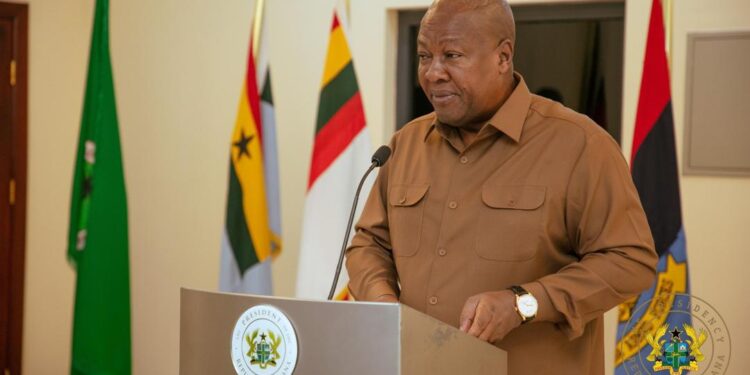The recent policy rate reduction by the Bank of Ghana (BoG) has drawn attention from financial analysts, with GCB Capital Research suggesting that the cut could have been more substantial.
According to their analysis, the 100 basis points (bps) reduction was deemed conservative, given the presence of potential upside risks to inflation.
Despite a leaning towards a more aggressive cut, the BoG’s Monetary Policy Committee (MPC) maintained a cautious stance, citing several factors that influenced their decision. One key factor is the current stringent policy stance, emphasizing the need to balance economic stimulus with measures to anchor the disinflation process.
The stability of the Cedi and favorable trends in crude oil prices were also cited as factors contributing to the MPC’s decision. These elements are crucial considerations in a nation’s economic landscape, influencing inflation dynamics and overall monetary policy.
The MPC, however, remains optimistic about the continued disinflation trajectory, even in the face of potential inflationary pressures. Projections indicate a gradual decline in headline inflation to 15%±2% by the end of 2024, with an anticipated return to the medium-term target range of 8%±2% by 2025.
GCB Capital Research, on the other hand, contends that the 1% rate cut appears conservative in light of the acknowledged inflation risks. Their analysis prompts a closer examination of the balance between stimulating economic growth and mitigating inflationary pressures.
The cautious approach of the BoG suggests a commitment to maintaining stability in the face of uncertainties. The acknowledged inflation risks highlight the delicate nature of the economic landscape, requiring a judicious blend of monetary policies to foster growth while guarding against potential price surges.
BoG’s Strategic Moves
The Monetary Policy Committee (MPC) of the Bank of Ghana (BoG) is adopting a strategic approach to address the challenges posed by inflationary concerns. Central to their strategy is the maintenance of a judiciously tight monetary policy stance and the rigorous implementation of the 2024 fiscal budget.
The recent reduction In the Monetary Policy Rate (base rate) to 29 percent showcases the MPC’s commitment to fine-tuning monetary measures to support economic growth while diligently managing potential inflationary pressures. This move represents a 100 basis points decline from the previous policy rate of 30 percent.
The MPC’s cautious approach highlights the delicate balance the BoG aims to strike between stimulating economic growth and averting inflation risks. By relying on a judiciously tight monetary policy stance, the committee aims to navigate the intricacies of the economic landscape, emphasizing the importance of a proactive fiscal strategy.
This prudent stance reflects the BoG’s unwavering dedication to preserving price stability. In the face of evolving macroeconomic dynamics, the central bank remains steadfast in its commitment to fostering sustainable economic expansion. The reduction in the policy rate is a tangible manifestation of the BoG’s proactive measures to support economic recovery.
As the BoG continues to implement its strategic moves, the efficacy of these measures will be closely monitored. Striking a balance between economic stimulus and inflation management is a challenging task, but the BoG’s commitment to this balancing act underscores its role as a stabilizing force in Ghana’s economy.
The reduction In the Monetary Policy Rate serves as a signal of the central bank’s responsiveness to prevailing economic conditions and its determination to ensure a resilient and stable financial environment.
As the economy evolves, it will be crucial to monitor how the BoG’s decision aligns with unfolding inflationary trends and broader economic indicators.
READ ALSO: Special Prosecutor Calls for Urgent Reforms Amid Ghana’s Disappointing CPI 2023 Score





















